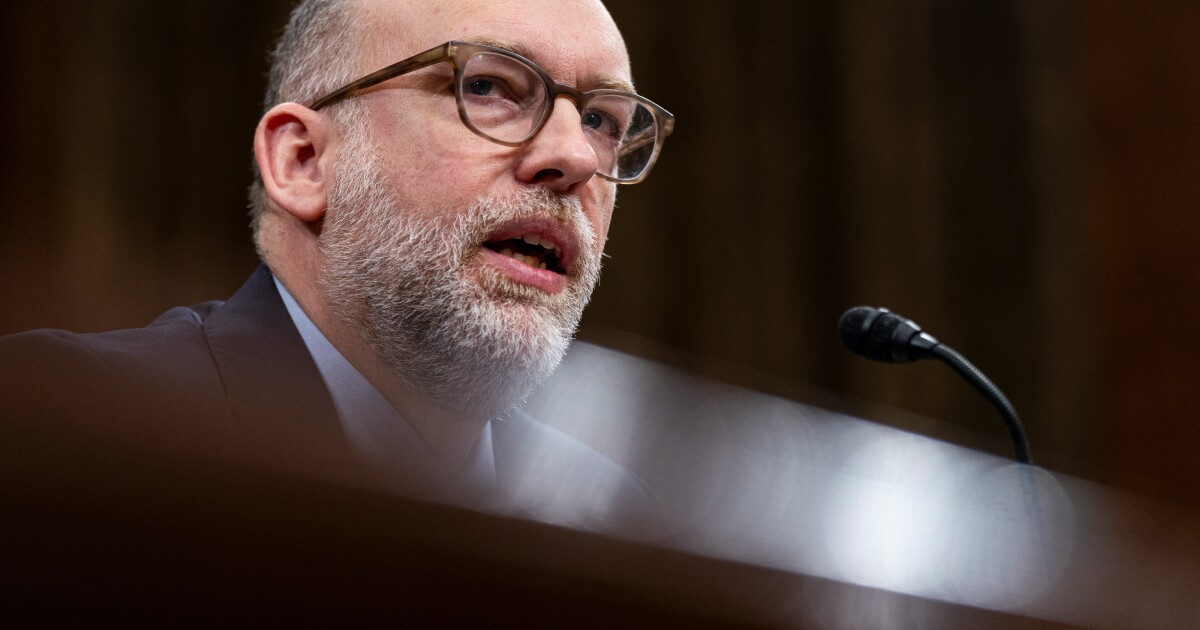
The Consumer Financial Protection Bureau is radically cutting enforcement by withdrawing nearly 70 guidance documents, citing President Trump's mandate to eliminate regulations and reduce costs for businesses.
In a major change for the public, the CFPB will no longer publicly disclose consumer complaint narratives or certain credit card complaint data, eliminating key information in the bureau's consumer complaint database in which consumers criticize banks and financial firms.
In a
"Our policy has changed," Vought wrote. "Historically, the bureau has released guidance without adequate regard for whether it would increase or decrease compliance burdens and costs."
More than half of the guidance documents, interpretive rules, policy statements and advisory opinions were issued by former CFPB Director Rohit Chopra under the Biden administration.
The CFPB is reducing its enforcement activities "in light of President Trump's directives to deregulate and streamline bureaucracy," Vought said.
There is "no pressing need for interpretive guidance to remain in effect," he wrote.
Many of the bureau's enforcement responsibilities, Vought said, overlap with or are duplicative of other federal and state regulators, including the Federal Trade Commission, the Department of Justice and prudential financial regulators.
"To reduce this overlap and mitigate the unnecessary compliance burdens posed by duplicative investigative and enforcement authority, the bureau is reducing its own enforcement to only those areas statutorily required."
Pulling guidance is one step out of many that the Trump administration has taken to diminish the CFPB's power and reduce enforcement and supervision of banks and financial firms. Vought claims the CFPB's guidance is too heavy-handed and hurts companies, while opponents say that focus ignores the beneficial effect the agency's actions have had for consumers.
Vought said the CFPB has a "new policy preference" that is guided by whether guidance imposes costs on companies. He cited an executive order that President Trump signed in his first term, which was later rescinded by President Biden.
"To the extent guidance materials or portions thereof go beyond the relevant statute or regulation, they are unlawful, undermining any reliance interest in retaining that guidance," he wrote. "Where guidance is not per se unlawful, the bureau nonetheless determines that guidance should be withdrawn and that it should be reissued only if the guidance is necessary and only if it reduces compliance burdens. The bureau determines that the benefits of this policy outweigh the cost to any purported reliance interests."
With
Two of the policy statements that have been withdrawn are the Fair Credit Reporting Act's limited preemption of state laws for debt collectors and the authority of states to enforce the Consumer Financial Protection Act of 2010. In addition, the CFPB has withdrawn certain interpretations of Regulation F.
"We doubt that state legislators and regulators will change course as a result of the withdrawal of those policy statements," Newburger said.
Current and former CFPB employees said the elimination of guidance is yet another step in which Republicans are trying to destroy the agency without input from Congress. It also means fewer consumers will receive redress for financial crimes because far fewer examiners and enforcement attorneys are on the beat.
In a memo last month, Vought said the CFPB will only conduct enforcement of issues affecting seniors and military veterans — specifically referring to members of the military as servicemen, not women. Yet, among the guidance being pulled is a 2021 interpretive rule authorizing the CFPB to examine very large banks and credit unions to assess risks to active-duty servicemembers and their dependents for violations of the Military Lending Act.
Many of the guidance documents date to the CFPB's beginning in 2011. The deregulatory effort will reduce regulations for banks, debt collectors, credit card issuers, credit reporting agencies, mortgage lenders and remittance companies.
Going forward, the CFPB's leadership will conduct a review to determine if each guidance document is consistent with a relevant statute or regulation, if it is required by law, and if it imposes or reduces costs.
"In many instances, this guidance has adopted interpretations that are inconsistent with the statutory text and impose compliance burdens on regulated parties outside of the strictures of notice-and-comment rulemaking," Vought said.
Withdrawal, he claimed, "is not necessarily final," but the alternative of leaving the guidance documents in place while the bureau reviews each interpretation to determine its effect "risks imposing unnecessary and illegal compliance burdens in the interim."
While some guidance might be reissued in the future, "the bureau does not intend to prioritize the enforcement of such guidance against parties that do not conform to the guidance during the pendency of any withdrawal."
Vought is mired in a fraught legal battle with the CFPB's union, which
Separately, on Friday, CFPB director-designate Jonathan McKernan was nominated to be the Treasury Department's undersecretary for domestic finance. The White House said the president intends to rescind McKernan's nomination to lead the CFPB.
Sticking to the Trump administration's executive orders, Vought pulled an interpretive rule that prohibited financial firms from discriminating based on sexual orientation and gender identity under the Equal Credit Opportunity Act and Regulation B.
In a major change, the CFPB will no longer publicly disclose consumer complaint narratives or certain credit card complaint data, withdrawing three policy statements from 2015, 2013 and 2012 on consumer complaints. The change benefits banks and financial institutions that have long complained that the bureau did not verify the accuracy of complaints and created reputational risk.
"The complaint data and the narrative data together enables institutions to identify, understand, predict and prevent emerging risks," said Marcia Tal, founder and CEO of Tal Solution, which analyzes consumer complaint data. "Insights extracted from the voice of consumers adds to best practices."



